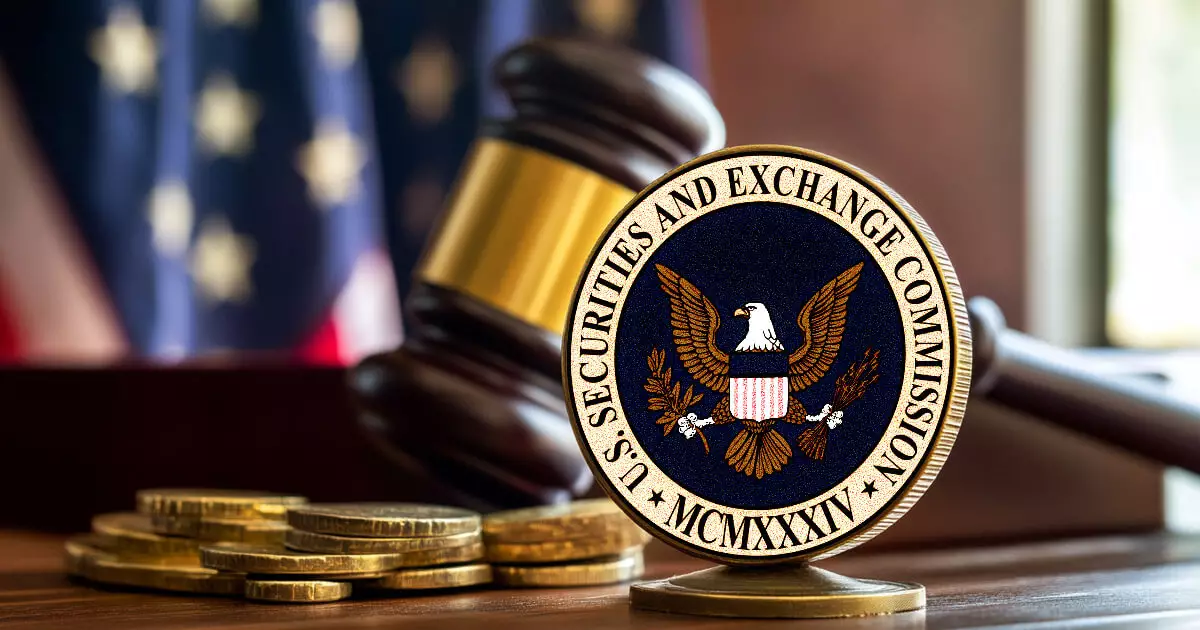On October 10, 2023, the Securities and Exchange Commission (SEC) made a significant move in its ongoing efforts to regulate the crypto industry by filing charges against Cumberland DRW, a Chicago-based cryptocurrency market maker. The SEC’s complaint asserts that Cumberland acted as an unregistered securities dealer, having engaged in substantial trading activities exceeding $2 billion in cryptocurrencies deemed securities since at least March 2018. This enforcement action underscores the SEC’s stringent stance on regulatory compliance in the rapidly evolving digital asset landscape.
The SEC’s accusation centers on Cumberland’s trading activities conducted via its platform, Marea, and through direct phone transactions. By classifying certain cryptocurrencies as securities, the SEC argues that Cumberland’s operations violated federal securities laws established to protect investors. Jorge G. Tenreiro, the acting chief of the SEC’s Crypto Assets and Cyber Unit, emphasized that all dealers transacting in securities must register with the Commission, irrespective of whether the assets in question are traditional or crypto.
Tenreiro’s remarks particularly challenge the prevalent notion within some segments of the crypto community that digital tokens should be treated solely as commodities. He contends that the very nature of Cumberland’s activities—focused on the sales and offers of certain cryptocurrencies—positions these transactions squarely under the umbrella of securities regulations, thus necessitating compliance measures designed to protect investors.
In response to the SEC’s actions, Cumberland publicly stated its intent to contest the charges. The firm frames the SEC’s enforcement as an attempt to inhibit innovation within the crypto space, expressing its confidence in its adherence to existing rules. On platforms like X, Cumberland reiterated its commitment to following rules that they claim are in flux, highlighting the challenges inherent in a regulatory environment that has not fully delineated the status of various digital assets. The firm articulated that, despite the complaint, it does not plan to amend its operational approach.
On its official website, Cumberland positions itself as a major liquidity provider in the over-the-counter (OTC) market, facilitating various cryptocurrency trades. This role is further emphasized by their extensive portfolio, which includes significant holdings in Bitcoin, Ethereum, stablecoins, and other digital assets, as reported by Arkham Intelligence and Nansen.
Interestingly, this isn’t the first time the firm has faced regulatory scrutiny. In 2013, the Commodity Futures Trading Commission (CFTC) brought market manipulation charges against DRW, Cumberland’s parent company. The case, concluded in 2018, resulted in a ruling in favor of DRW, where the court found insufficient evidence to support the CFTC’s claims. This historical context colors the current situation, as Cumberland suggests that the SEC’s latest actions reflect a larger issue within the U.S. regulatory framework—a confusing and inconsistent approach to digital asset regulation.
As the legal proceedings unfold, the outcome of the SEC’s complaint against Cumberland may have far-reaching implications for the cryptocurrency sector. The SEC’s insistence on registration for market participants raises pertinent questions regarding what constitutes a security in the crypto realm. If Cumberland succeds in its defense, it could set a precedent for how similar cases are approached in the future, impacting how digital asset firms operate under U.S. jurisdiction.
Furthermore, this case reveals the complexities and challenges surrounding internal compliance mechanisms at crypto firms. As Cumberland highlights ongoing dialogues with the SEC regarding its operations, this points to a broader industry concern: the necessity for clearer regulatory frameworks that provide guidance rather than ambiguity.
As we dissect the SEC’s legal action against Cumberland DRW, it becomes clearer that the intersection of cryptocurrency and regulation is fraught with complexities. This case is more than a litigation between a market maker and a regulatory body; it emphasizes the need for a coherent and comprehensive framework for regulating digital assets. In a time where innovation and compliance are often at odds, clarity is paramount. Without it, firms could find themselves navigating a minefield of regulations—one that continues to evolve at a rapid pace.
















Leave a Reply